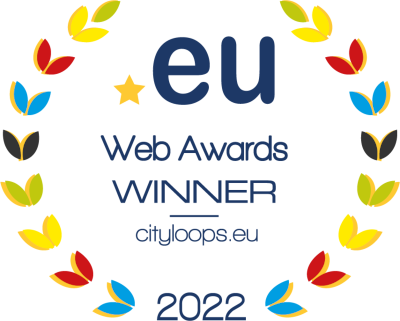Stakeholder engagement for the circular transition
Over the past decades, urban governance has become more fragmented, often leaving public resources diminished. At the same time, the shift from a linear to a circular economy requires a complete overhaul of the city functions and, as such, should mobilise all the levers of urban policy-making. To overcome these challenges, engaging with stakeholders across sectors - ranging from civil society, public authorities, businesses to academia, often referred as “the quadruple helix” - has become a necessity for cities. By doing so, local authorities can raise awareness on issues related to circularity and sustainability, help others grasp circular opportunities, increase the impact of their own policy interventions and create collaboration and partnerships that might not have emerged otherwise. To read more about how stakeholder engagement can contribute to the circular transition, click here.
Stakeholder engagement in CityLoops
Stakeholder engagement is an integral part of the CityLoops support framework and it is contributing to embedding circularity within cities' decision making and planning procedures over the long term. All activities within the project have benefitted or will at some point benefit from focussed stakeholder dialogue, starting from planning and preparation of demonstration actions, their implementation, data collection and material flow analysis, evaluation, circular procurement, awareness raising and replication. Gender perspectives have been taken into account in stakeholder engagement activities to ensure a balanced gender representation when selecting groups, institutions and individuals to be engaged.
Local Stakeholder Partnerships
At the beginning of the project, cities developed Stakeholder Engagement Plans, including a mapping of stakeholders involved at different stages (inception, implementation and evaluation) and across the quadruple helix, as well as actions aiming to effectively engage with them. This work was supported by CityLoops partner NRI, who undertook an (academic) literature review and provided state-of-the-art guidelines to cities. A core element of this plan has been the formation of Local Stakeholder Partnerships, consisting of the key stakeholders involved in the implementation of different aspects of the demonstration activities, and acting as the local steering group.


Collaborative Learning Networks
At the regional level, each city has established a Collaborative Learning Network (CLN) with other municipalities, public administrations and other relevant organisations in their regions, based on the category, sector and products addressed within the demonstration project. Participants are those organisations who are relevant to scale up demonstration measures to the regional level, including procurement professionals from other municipalities. The Networks meet regularly (1-2 times per year) to closely observe the measures implemented, with discussion to focus on strategies for regional upscaling, eventually contributing to development of the Upscaling Plan.

